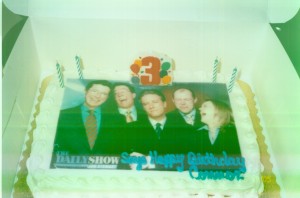 Curriculum & Instruction
Curriculum & Instruction  2 Comments
2 Comments 10 Things My 30s Taught Me
On December 28, I turned 40. This came as no surprise, even to one as math-impaired as me.
It’s virtually impossible to throw a birthday party on my birthday, since everyone is exhausted from Christmas and saving up energy for a big New Year’s Eve blowout (if they’re even in town). There’s even an Old English word for it: symbel-werig. It means “feast-weary,” and that’s what everyone is on my birthday.
The worst it ever got was my 18th birthday. My parents had dinner theater tickets, and my brother was at his friend’s house (after his birthday, the day before mine. No, really.). My sister and I were home alone. She made a Pyrex bowl of raspberry Jell-O and stuck a taper candle in it. We watched Schindler’s List. Whoop-de-doo.
For the big one this year, though, I decided that nothing said “me at 40” like riding rollercoasters. Thanks to Nickelodeon Universe, the indoor theme park in the middle of the Mall of America, it’s actually possible to do this in a Minnesota winter. Also, yay for half-price unlimited ride wristbands from 5-10pm. There was the entertaining possibility that I’d get a mall security escort because I’d been a marshal at the #BlackLivesMatterMOA protest two weeks earlier. I planned to lure him onto rides, in case I felt like chanting anti-oppression slogans on the loop-de-loops. Alas, no joy.
Rolling over the odometer also made me think about what can happen in just one decade of living. I don’t feel older, or even different, just more like the person 30-year-old me hoped to be eventually. Still, I learned a lot of lessons in the last 10 years, so here’s the top 10 lessons I learned in my 30s.
1) Having a second child is nothing like having the first. I had my first son when I was 28, and my second one when I was 32. Instead of throwing up 20 hours a day for 5.5 months, I threw up 24 hours a day for 7.5 months in my second pregnancy. My labor couldn’t have been more different, too. And you needn’t look any further than this blog for how different the boys are from one another. Motherhood: what a weird, wonderful ride.
2) The key to my kid is the key to myself. When I was a kid, my parents and teachers told me I was “socially backward” because I was intellectually advanced. Slamming doors and balloons popping gave me migraines. I preferred the company of adults. And I recognized a lot of these traits in my older son; we joked that he inherited those traits. In fact, what we both were was autistic. Learning that unlocked memories and mysteries that plagued me my whole life, and understanding those helped me translate the world for my kid. We’re all so much better for knowing ourselves.
3) Intersectionality is everything. I’ve felt this way forever, but didn’t know there was a word for it until I read a Flavia Dzodan blog post that introduced me to the term, coined by UCLA prof Kimberlé Crenshaw. I also didn’t realize it was such a controversial idea until I started advocating it. How is this difficult for people to understand? We are all so many different people, and all of our selves are bound together when it comes to liberation. How can you be a feminist who excludes trans women? How can you be anti-racism and simultaneously suppress the contributions of women? How can you demand an end to oppression but hold planning meetings that are inaccessible to disabled people? In Flavia’s words, “My activism will be intersectional or it will be shit.”
4) Don’t move without a safety net. I learned this one the hard way. In Minnesota, you have to be a resident before you can apply for state health insurance. We had paperwork ready to go the day we moved, but we encountered a four-month wait. We’d saved money for an appointment to get me set up with bridge coverage for my fibro and depression. What I didn’t do was research doctors—the one I went to refused to continue the treatment plan I’d had for over a decade. The decompensation that happened without my prescriptions resulted in a summer lost to pain and despair, ultimately landing me in the hospital. Lesson learned? You cannot overplan for your medical care when moving–your life literally depends on it.
5) Family is what you make it. I grew up so close to my family that I refused to even consider moving to New Zealand to be with my Darling Husband, because I couldn’t imagine going so long between visits with my parents and siblings. But after I called out my family about 4 years ago for treating my autistic son like crap and undermining our parenting, everything changed. My brother and sister still won’t talk to me for hurting my mom, even though she and I are fine now. Thankfully, we’ve built a family of friends, old and young, near and far, who more than make up for the love lost. All that’s left to mourn is the continuity.
6) Sharing knowledge is more than the letters after your name. My grad school department kicked me out in 2005 because my area of study didn’t match their idea of subjects that build a “world-class history program.” Despite that, I have 15 years of teaching experience, and knowledge that I use everyday—with my kids, with other kids, with other adults, and in my organizing. Teaching is my vocation, plainly put. Even if the flood of post-recession Ph.D.s makes it unlikely I’ll get a college job again, I’m always looking for ways to share what I know in engaging ways.
7) Caucusing is hazardous to your health. Until we moved to Minnesota, I’d always lived in states with primary elections, so I was extremely excited to attend my first caucus on February 2, 2012. It was weird and idiosyncratic and strangely wonderful; I was too hyped about democracy to sleep until midnight. At about 1:00 AM, I woke with abdominal pain. By 5:00 AM, it was worse than labor, and Darling Husband took me to the ER. I had acute pancreatitis, caused by a gallstone. I spent a week in the hospital, and they surgically removed a bag of rocks from my gut. I now view caucuses as highly suspicious and potentially life-threatening.
8) I am committed with my whole heart and soul to equity. This isn’t about rights, or even history. It’s about empathy. If anyone’s potential is oppressed for who they are, then my potential is also less. I see the beautiful humanity in everyone, and want for them the joys I’ve found and the opportunity to be all of themselves. And yes, I’m willing to block traffic, invade public spaces, and commit civil disobedience to make this happen. I consider it a sacred duty.
9) Together, we win. I’ve never been very competitive, and I always plan for failure so that, as Lloyd Dobbler wisely advised, “…everything’s kind of a pleasant surprise.” But with the campaign for marriage equality, and against Voter ID, and for a new anti-bullying bill and a higher minimum wage, guess what I discovered? I like to win. I like it almost as much as the conversations and organizing it takes to come out victorious. These efforts and the folks I’ve met in them evaporated any cynicism I had about the potential of people power. I highly recommend it to everyone.
10) It’s never too late. I didn’t intend to really go balls-out for the last year of my 30s, but I accidentally did. I learned and performed burlesque dance, even in this imperfect body. I got two big tattoos, the first I’ve ever had. I went to a national convention for community organizers. I shut down highways, corporate offices, and the largest mall in America. I made my kid’s middle school change their negative, reactive response to common autistic behaviors, and re-centered them on positive reinforcement that nourishes all children’s education. All this with my physical and mental limitations. It’s never too late to do important things, and if you forget that, just ask me for a reminder.
 I’ve been working on the campaign for marriage equality here in Minnesota since March, and
I’ve been working on the campaign for marriage equality here in Minnesota since March, and 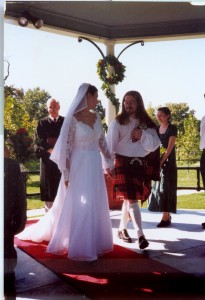
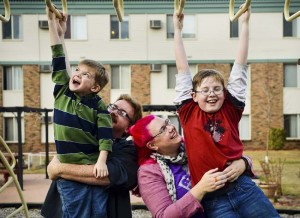




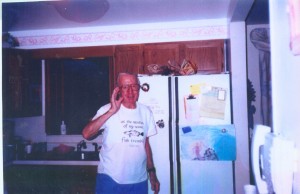
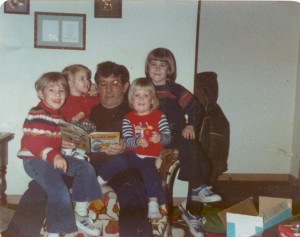


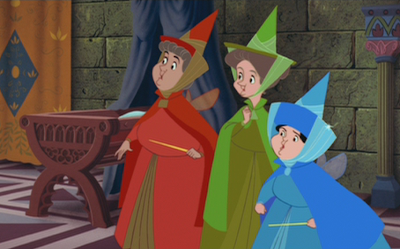 But every once in a while, especially when I see something of myself or Cam reflected back from them in flawless mirror image, my mind flits across whimsical images. Sometimes, it’s the three fairies from Sleeping Beauty, hovering over their cradles and bestowing gifts. And sometimes, more magical in its own way for being true, I imagine those tiny coded zippers–unfurling, melding pieces of each of us into someone new and unique but so familiar, then coiling again, before doing a little do-si-do and starting the whole thing over again, in the blink of an eye. Amazing, but frankly, it hurts my head a little to contemplate it all.
But every once in a while, especially when I see something of myself or Cam reflected back from them in flawless mirror image, my mind flits across whimsical images. Sometimes, it’s the three fairies from Sleeping Beauty, hovering over their cradles and bestowing gifts. And sometimes, more magical in its own way for being true, I imagine those tiny coded zippers–unfurling, melding pieces of each of us into someone new and unique but so familiar, then coiling again, before doing a little do-si-do and starting the whole thing over again, in the blink of an eye. Amazing, but frankly, it hurts my head a little to contemplate it all.
 This has been a weird month for our family. While we’re overjoyed at the release of
This has been a weird month for our family. While we’re overjoyed at the release of 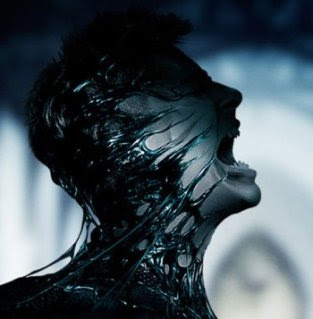 Guilt is a normal state of existence for mothers everywhere, but seeing the depression that’s derailed whole seasons of my life wrap its sticky, persistent black tendrils around my beautiful boy–it weighs like a stone on my heart. And it’s probably no consolation to him, when he says there isn’t anything good in the world for him, or anything good he can give back to the world, that I can look him straight in the eye and say, “I know exactly how you feel right now.” Sometimes, I do things that fly in the face of my own experience–I don’t particularly like or find comfort in being touched when I’m that depressed, but I hold him so tightly as he weathers hurricanes of emotion too big for his little body, and I hope it brings him calm sooner than he would find alone.
Guilt is a normal state of existence for mothers everywhere, but seeing the depression that’s derailed whole seasons of my life wrap its sticky, persistent black tendrils around my beautiful boy–it weighs like a stone on my heart. And it’s probably no consolation to him, when he says there isn’t anything good in the world for him, or anything good he can give back to the world, that I can look him straight in the eye and say, “I know exactly how you feel right now.” Sometimes, I do things that fly in the face of my own experience–I don’t particularly like or find comfort in being touched when I’m that depressed, but I hold him so tightly as he weathers hurricanes of emotion too big for his little body, and I hope it brings him calm sooner than he would find alone.